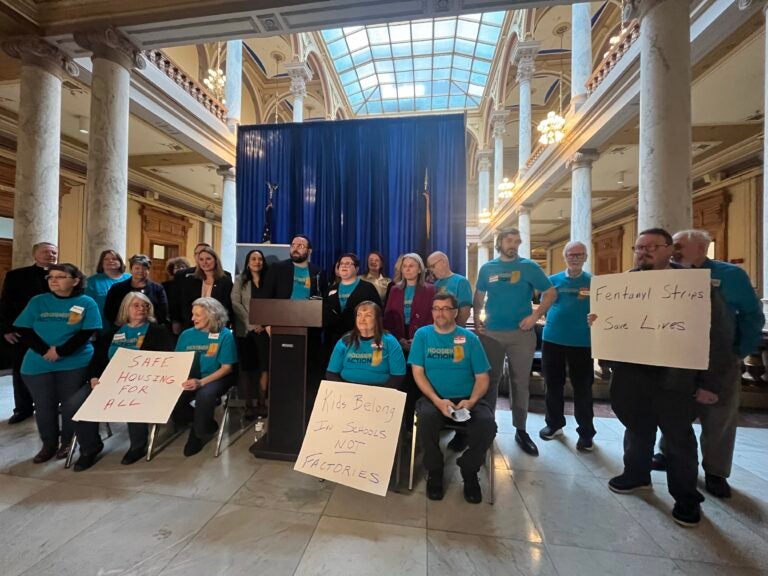Senate child labor bill heads for governor; House bill still moving
INDIANAPOLIS (INDIANA CAPITAL CHRONICLE) — Senators agreed with changes made by House lawmakers on a child labor bill Thursday, sending the proposal on a 31-13 vote to Gov. Eric Holcomb’s desk.
Senate Bill 146 would lower the minimum age of a teenager serving alcohol from 19 to 18, so long as they had a supervisor over the age of 21. Four Republicans joined the Democratic caucus to oppose the measure.
The measure has a House counterpart, which would remove restrictions on the hours that teenage employees can work and strikes agriculture as a “hazardous occupation,” which allows 16- and 17-year-olds to work in that sector.
Originally the Senate version included similar language, but the House stripped that language to avoid a conflict with their bill.
Sen. Shelli Yoder, D-Bloomington, spoke against the proposal, noting the number of penalties the Department of Labor reported when it came to employer violations and the prevalence of workplace sexual harassment in places serving alcohol.
“These fees are a result of bad players who are taking advantage of our youth,” Yoder said. “I am very concerned about the pairing of these two and being able to protect our youth when it comes to sexual harassment in the workplace.”
The bills come amid a national move to strip protections even as child labor violations increase, according to the Economic Policy Institute. In the first nine months of 2023, the Washington Post found that three-quarters of these violations came from the food service industry.
Currently, the maximum fine for child labor violations in Indiana is $400 after multiple, consecutive violations.
Outside organizations weigh in
At a Wednesday press conference, Hoosier Action Clark County Moms Chapter Leader Kimberly Freeman decried the dual efforts to reduce child labor restrictions.
“I can’t imagine sending my 14 year old to work a dangerous job instead of getting an education. This bill will affect all of us — your families and communities — because we all lose out in the long run,” Freeman said. “We need an educated workforce and kids deserve a chance to get a real job in their local economies.”
She noted that Meta was constructing an $800 million data center in her hometown of Jeffersonville and that kids needed to stay in school to get the training to qualify for such work.
“Also, we know the changes to this law will hurt our poorest and most vulnerable kids. I don’t want to read in the newspaper next year about a child that died on a hazardous job (who) should have never been doing all of that for the profit of greedy corporations,” Freeman said. “Let kids be kids. Let them learn and let them grow.”
While some of the committee testimony in favor came from employers wanting teenagers to work longer hours, some support also came from Amish families who traditionally end schooling by eighth grade.
Indiana’s influential Chamber of Commerce has come out as neutral on the two pieces of legislation.
Employment Vice President Ashton Eller told reporters Wednesday that the chamber understands businesses have empty positions and that teenagers can fill some of them.
“We respect that argument,” Eller said. “But we’d also like to see, when teenagers are working, that their work experience goes to some type of further education credential – anything that helps them become the educated, skilled workforce of tomorrow that we need. And that’s not really addressed.”
